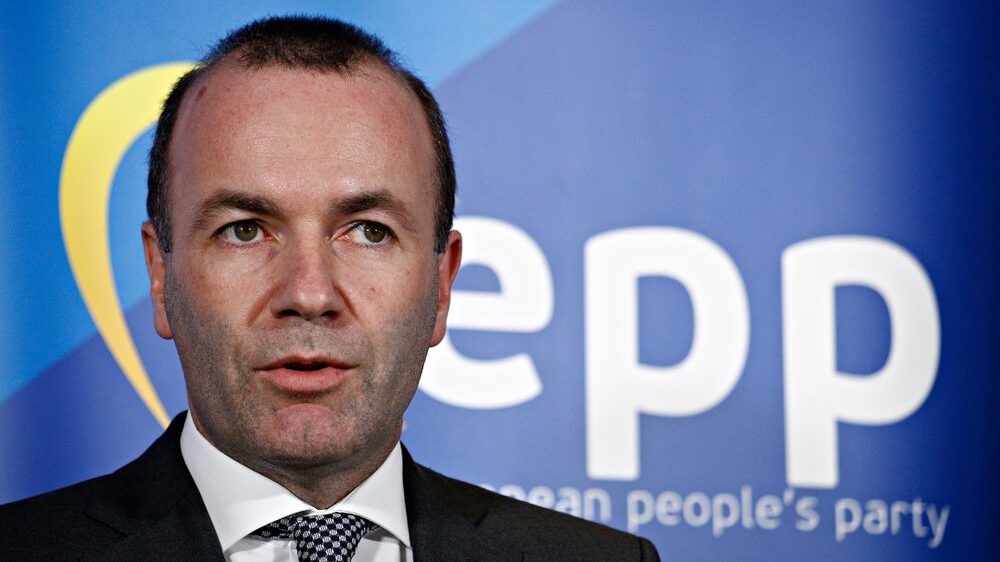
Manfred Weber.
Photo: Alexandros Michailidis / Shutterstock.com
Bad blood in the conservative EPP (European People’s Party) spilled over this week after a raid of their Brussels headquarters on Tuesday, April 4th exposed latent factionalism within the group—the largest political contingent within the European Parliament—and disapproval of the leadership of its president Manfred Weber.
During the raid, Belgian police seized computers pertaining to a German corruption probe against former EPP digital campaign director Mario Voigt over the awarding of a €300,000 plus contract during the 2019 European elections.
Voigt, also the CDU’s top official in the German state of Thuringia, is alleged to have accepted a bribe from the company selected to design a campaign app.
EPP chief Weber has been criticised for his relationship with Voigt, who served as a former senior advisor. Through Voigt, the EPP has been implicated in the scandal, tarnishing their authority to criticise the S&D group over Qatargate.
It is understood that internal relations within the EPP were already strained over Weber’s recent right-wing pivot and outreach to the ECR’s Giorgia Meloni. A planned EPP gathering in Warsaw was cancelled following Tuesday’s raid.
The EPP has clashed internally throughout the past year. Centrist elements in the CDU have increasingly tried to block the inclusion of Meloni in the group and openly chastised its Italian affiliate Forza Italia, and leader Silvio Berlusconi, for critical comments he made about Ukrainian President Zelensky. Polish members of the bloc, the Civic Party—currently facing an uphill battle in forthcoming Polish elections—are known to be particularly aggrieved by Weber’s attempts to recruit Meloni and her Fratelli party.
Events from the week may undermine Weber’s hopes of challenging Ursula von der Leyen for the top job in the Commission and his attempts at positioning the EPP further to the Right ahead of next year’s European elections.
Whether this is a standard grift scandal or part of a wider internal conflict, the EPP, generally regarded as the pragmatic backbone of Brussels politics, is primed for future infighting, as it slowly moves in step with the rise of national populism in Europe.
